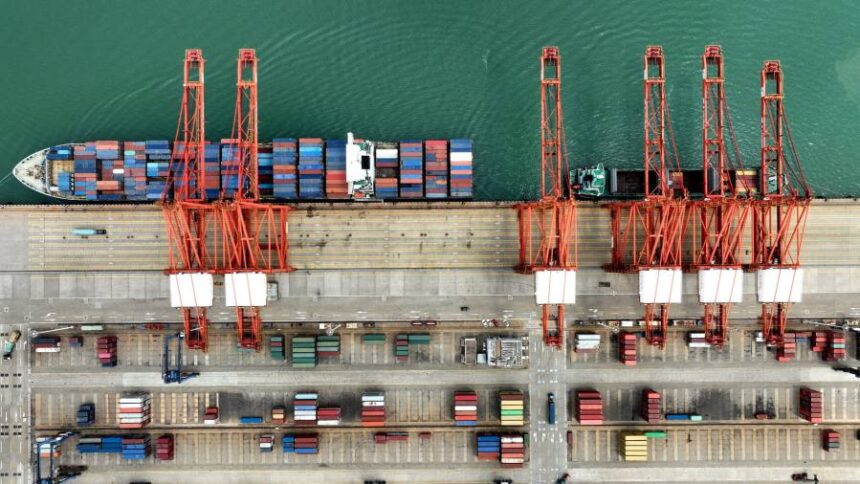Receive free Chinese trade updates
We’ll send you a myFT Daily Digest email rounding up the latest Chinese trade news every morning.
China’s exports and imports fell more sharply than expected in July, adding to a prolonged trade slump that is fuelling concerns over growth prospects for the world’s second-largest economy.
Exports declined by 14.5 per cent year on year in dollar terms, official data showed on Tuesday, the steepest fall since the outset of the coronavirus pandemic in February 2020. Imports tumbled 12.4 per cent, the biggest decline since a wave of infections hit the mainland in January and one of the worst in recent years.
Economists polled by Reuters had forecast falls of 12.5 and 5 per cent respectively.
Weakness in international trade is one of the main sources of pressure for policymakers in Beijing, who are also grappling with a paralysed property sector and flagging domestic demand since anti-pandemic measures were lifted in December.
China’s exports helped prop up its economy during three years of closure to the world, but have struggled in 2023 as high global inflation and rising interest rates damped demand for its goods. Exports have declined year on year in each of the past three months, dropping 12.4 per cent in June, when imports also shed 6.8 per cent.

Manufacturing activity has also contracted for four straight months, according to purchasing managers’ indices, reflecting a weaker export environment and undercutting one of the anticipated engines of China’s economic recovery.
July’s unexpectedly severe fall in imports also demonstrated how disappointing domestic consumption was fuelling trade concerns, more than half a year after Covid-19 swept through the country.
“The imports data was pretty bad,” said Julian Evans-Pritchard, head of China economics at Capital Economics. “On our estimates, pretty much all the recovery in import volumes since the start of the year was unwound in July, which is concerning, to say the least, and suggests the domestic picture was weakening quite rapidly in the last month or two.”

In Hong Kong, the Hang Seng China Enterprises index was down 1.8 per cent following Tuesday’s trade data release.
“There’s a lot of selling happening today on the back of this export data,” said Louis Tse, managing director of Hong Kong-based broker Wealthy Securities.
In a statement, China’s customs administration said imports were down 7.6 per cent to $1.46tn in the first seven months of the year, while exports were down 5 per cent at $1.94tn.
President Xi Jinping’s government has set a cautious growth target of 5 per cent this year, the lowest in decades. In the second quarter, the economy added 6.3 per cent compared with the same period last year, when Shanghai and other big cities were locked down, but growth was just 0.8 per cent in quarter-on-quarter terms.
Beijing has not enacted major stimulus but has gradually cut cornerstone borrowing rates and taken steps to encourage activity.
Inflation data, which is set to be released on Wednesday, has for months been edging closer to deflation and will provide further evidence on domestic spending.








